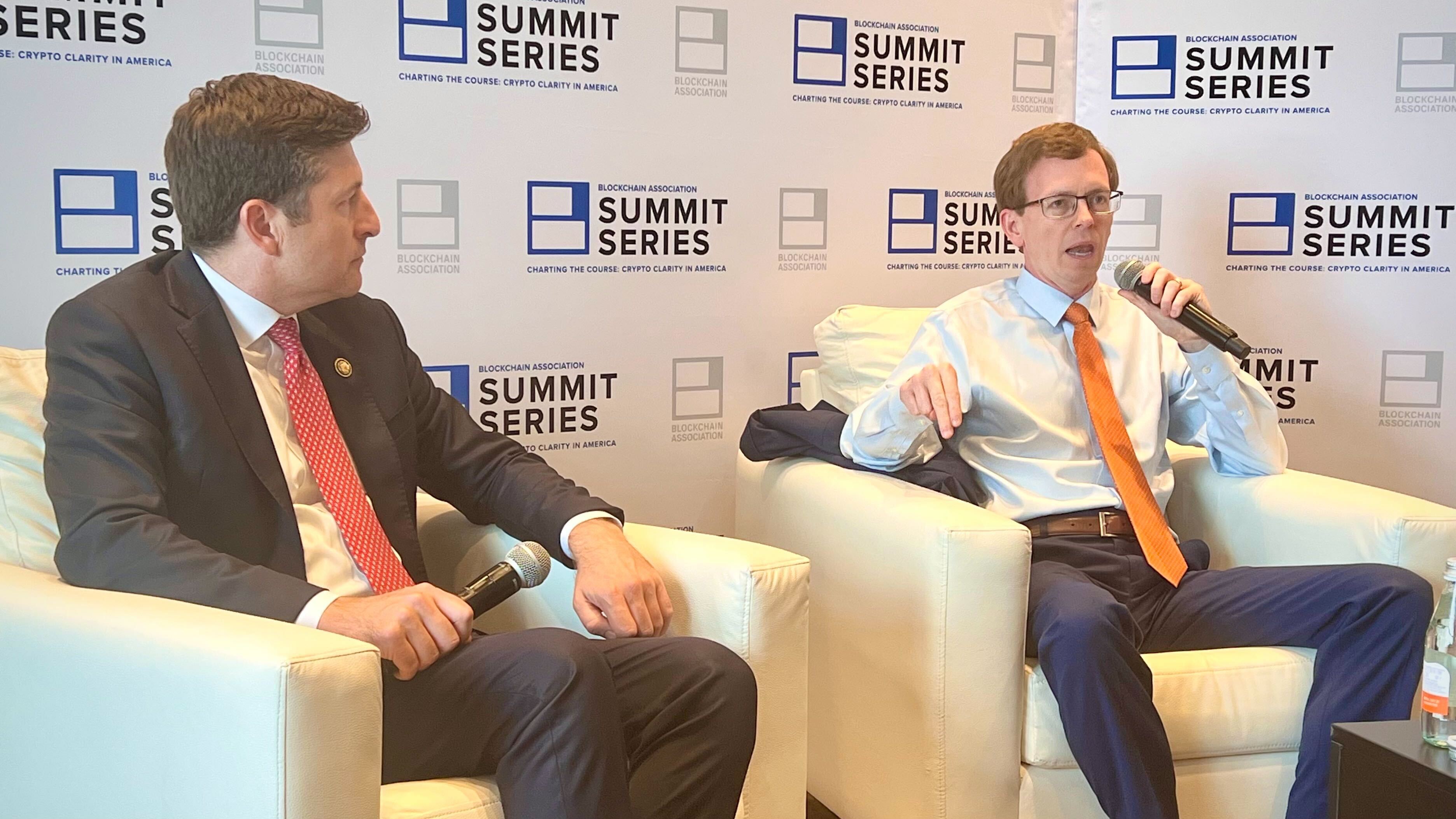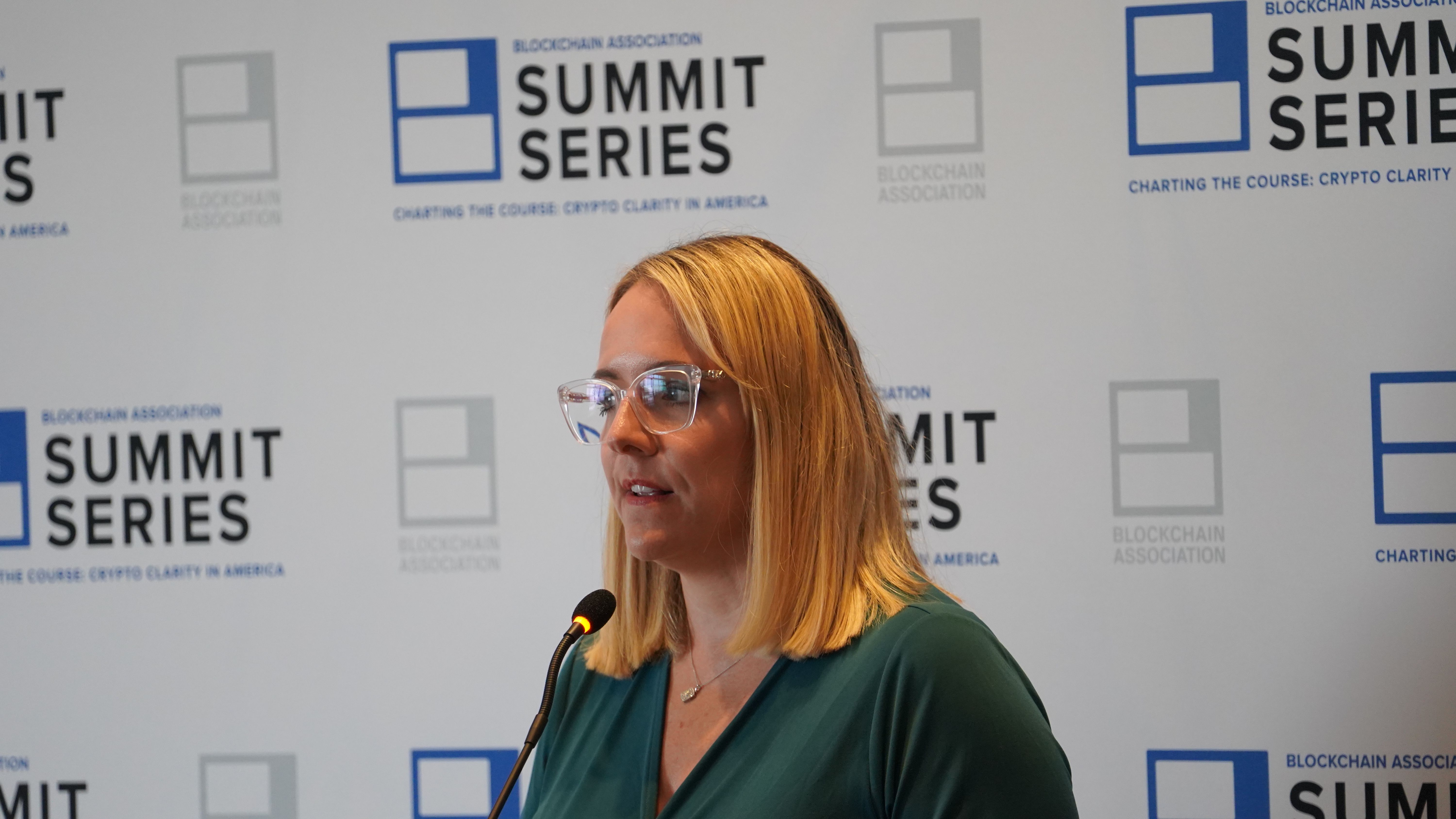Stablecoin Legislation Nears Rare Bipartisan Breakthrough—Senate Braces for Consensus
Washington's gridlock might finally crack—on crypto, of all things. A Democratic lawmaker predicts the Senate's stablecoin bill will rally unprecedented cross-aisle support, signaling regulators are desperate to catch up with the $160B+ market they've ignored for years.
The DC Miracle: When Crypto Unites Politicians
Even partisan hawks agree—stablecoins need rules before they rewrite finance. The bill's momentum exposes how far behind lawmakers are, scrambling to regulate what's already propping up DeFi's shadow banking system.
Bankers Hate This One Trick
While Congress debates 'guardrails,' Tether's $112B reserves keep printing profits offshore. Nothing unites politicians faster than seeing revenue slip away—except maybe lobbyist checks clearing.
'Good product'
“I really wanted to bring a good product to the floor,” Gallego said. And so far, his Republican counterparts “have been honoring everything we agreed to.”
If that continues, the bill should come to a final vote next week that gets major bipartisan approval, Gallego said, which he contends could show even more support than previous procedural votes.
Even if the bill meets with success, as he expects, it doesn’t work without also passing the legislation to set up regulations for the structure of the wider crypto markets.
He added that he hoped market structure legislation would be worked on in a bipartisan manner, noting that while the stablecoin bill is likely to advance through Congress, "there's only so much time on the calendar" to work through other bills. The Senate will have to take up budget legislation at some point, in addition to whatever market structure bill it ultimately introduces.
“The House product has to be strong,” Gallego said, and that will direct what then happens in the Senate. “We don’t want to be starting from square one.”
'Optimistic' deadline
Gallego suggested that an August deadline is optimistic and added that as long as it’s done early next year, before March, it may not be tainted by next year’s congressional elections.
“We all become like animals during the election cycle,” he said of his colleagues on Capitol Hill.
Congressman French Hill, who runs the House Financial Services Committee, agreed with Gallego that finishing both bills is vital.

“I'm not going back to [former Securities and Exchange Commission Chair] Gary Gensler,” Hill said. “But if we don't pass both bills, we are potentially at that whim at any moment,” to return to the interpretation of regulators operating without tailored laws.
Without the market structure legislation, traditional finance firms and the general public may not be as willing to delve into the digital assets sector, he said.
"Traditional finance people won't partner, won't custody, won't act as a broker, won't act as a dealer, won't hire you to create an on-ramp or off-ramp. It won't be interoperable. None of that will happen if you don't have clarity, which is why we have to have both of these bills pass the Congress and be signed into law in this Congress," he said.
Hill said that lawmakers from both parties and chambers still have a chance to MOVE the bills by August, “if we cooperate with each other.”
Congress will try to move both bills to President Donald Trump's desk by August, said Wisconsin Representative Bryan Steil. Dusty Johnson, who represents South Dakota, said that there may be some differences of opinion between the House and Senate on at least the market structure legislation.
"We can take GENIUS, but I don’t think they would necessarily take our Clarity Act lock, stock and barrel," Johnson said at the event.
The bills from the House and Senate need to be identical before the President can sign them into law. Either one of the legislative bodies would have to sign off on the other body's work, or the two bodies would have to negotiate out any differences.

'One strong, loud voice'
The House Financial Services Committee will hold a markup on the market structure bill next Tuesday.
“We have a lot of work we have to do,” said Gallego, noting that stretching the process into the start of next year still works.
“If we move too fast with a shitty product, then we’re going to have a shitty vote,” he said.
The crypto industry also needs to be more unified in how it approaches lawmakers, Blockchain Association CEO Summer Mersinger said in her first public appearance in the role since leaving the Commodity Futures Trading Commission.

"We must speak with one strong, loud voice in Washington," she said. "Speaking with one voice does not mean we all have to think the same way or we have to agree on every issue."
However, the different groups and companies lobbying Washington should find common ground, she said.

